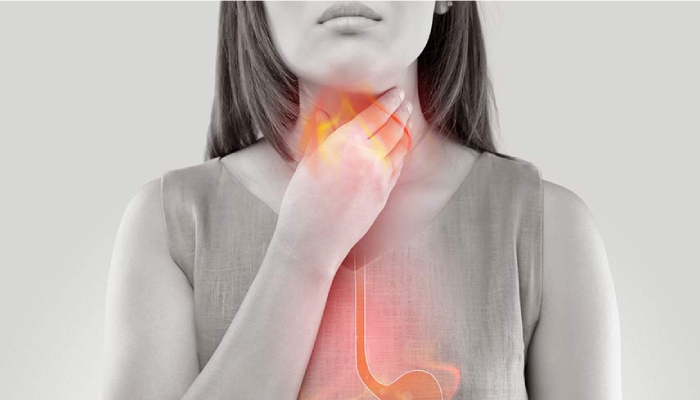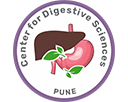Overview
Achalasia Cardia is a rare disorder that makes it difficult for food and liquid to pass from the swallowing tube connecting your mouth and stomach (esophagus) into your stomach. Achalasia Cardia occurs when nerves in the esophagus become damaged. As a result, the esophagus becomes paralyzed and dilated over time and eventually loses the ability to squeeze food down into the stomach. Food then collects in the esophagus, sometimes fermenting and washing back up into the mouth, which can taste bitter. Some people mistake this for gastroesophageal reflux disease (GERD). However, in achalasia the food is coming from the esophagus, whereas in GERD the material comes from the stomach.

What are the Symptoms of Achalasia Cardia?
- Inability to swallow (dysphagia), which may feel like food or drink is stuck in your throat
- Regurgitating food or saliva
- Heartburn
- Belching
- Chest pain that comes and goes
- Coughing at night
- Pneumonia (from aspiration of food into the lungs)
- Weight loss
- Vomiting
What are the Causes of Achalasia Cardia?
The exact cause of achalasia cardia is not known clearly. Super specialist suspect it may be caused by a loss of nerve cells in the esophagus. There are scientific papers about what causes this, but viral infection or autoimmune responses have been suspected. Very rarely, achalasia cardia may be caused by an inherited genetic disorder or infection.
How to diagnose Achalasia Cardia?
- Esophageal manometry: This test measures the rhythmic muscle contractions in your esophagus when you swallow, the coordination and force exerted by the esophagus muscles, and how well your lower esophageal sphincter relaxes or opens during a swallow. This test is the most helpful when determining which type of motility problem you might have.
- X-rays of your upper digestive system (esophagram): X-rays are taken after you drink a chalky liquid that coats and fills the inside lining of your digestive tract. The coating allows doctor to see a silhouette of your esophagus, stomach and upper intestine. You may also be asked to swallow a barium pill that can help to show a blockage of the esophagus.
- Upper endoscopy: Gastroenterologist inserts a thin, flexible tube equipped with a light and camera (endoscope) down your throat, to examine the inside of your esophagus and stomach. Endoscopy can be used to define a partial blockage of the esophagus if your symptoms or results of a barium study indicate that possibility. Endoscopy can also be used to collect a sample of tissue (biopsy) to be tested for complications of reflux such as Barrett’s esophagus.
What are the treatment options available for Achalasia Cardia?
- Medication: Gastroentrologist might suggest muscle relaxant before eating. These medications have limited treatment effect and severe side effects. Medications are generally considered only if you’re not a candidate for pneumatic dilation or surgery, and other medications hasn’t helped. This type of therapy is rarely indicated.
- Heller Myotomy: The surgeon cuts the muscle at the lower end of the esophageal sphincter to allow food to pass more easily into the stomach. The procedure can be done non-invasively (Laparoscopic Heller Myotomy). Some people who have a Heller myotomy may later develop gastroesophageal reflux disease (GERD). To avoid future problems with GERD, a procedure known as fundoplication might be performed at the same time as a Heller myotomy. In fundoplication, the surgeon wraps the top of your stomach around the lower esophagus to create an anti-reflux valve, preventing acid from coming back (GERD) into the esophagus. Fundoplication is usually done with a minimally invasive (laparoscopic) procedure.
- Peroral endoscopic myotomy (POEM): In the POEM procedure, the Gastroenterologists uses an endoscope inserted through your mouth and down your throat to create an incision in the inside lining of your esophagus. Then, as in a Heller myotomy, the surgeon cuts the muscle at the lower end of the esophageal sphincter. POEM may also be combined with or followed by later fundoplication to help prevent GERD. Some patients who have a POEM and develop GERD after the procedure are treated with daily oral medication.
Book Your Appointment Today
Book your appointment with Dr. Ujwal Zambare he is having 12 years of experience in Gastro-intestinal surgery, oncology, minimally invasive surgery and Liver, Pancreas, Biliary tract surgery.

Dr. Ujwal Zambare
MBBS, MS (General Surgery), DNB (Gastrointestinal Surgery)
Fellowship in Minimal Access Surgery
Copyright © 2021. Dr. Ujwal Zambare – Liver, Pancreas, Biliary Tract Surgery Specialist in Pune. | All Rights Reserved.
All Text and Images is for information of Patients and Public and doesn’t replace medical practitioners advice. Visit doctor for medical advice.



